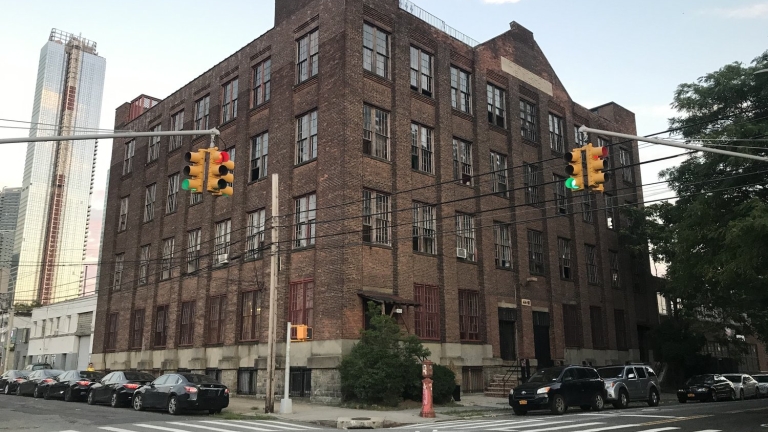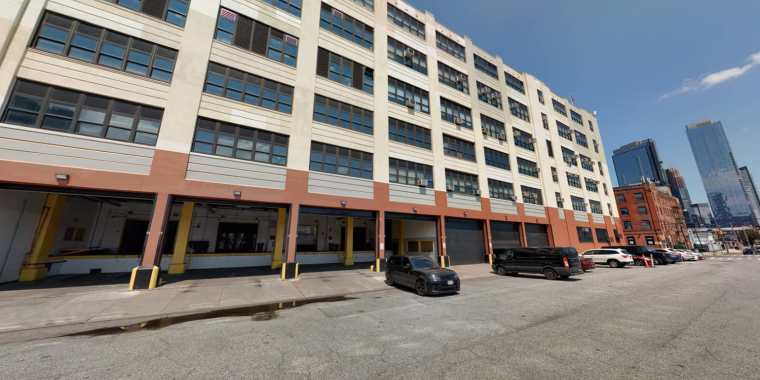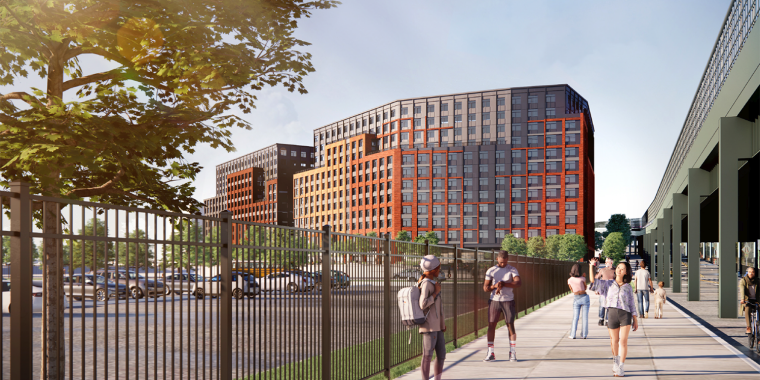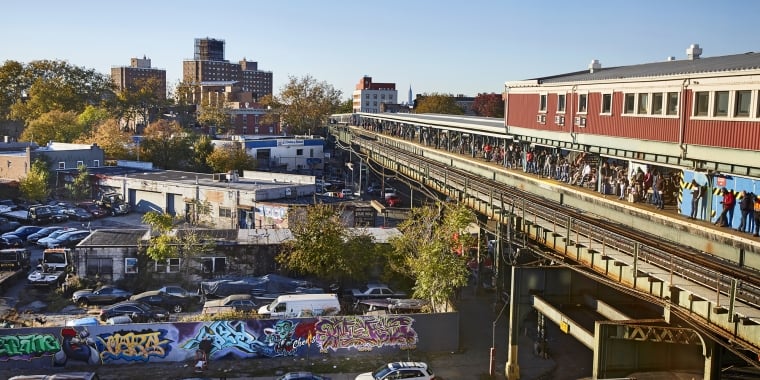NYCIDA Advances Financial Assistance to Renovate Long Island City’s Metropolitan Building into Small-Scale Manufacturing Hub

Currently Under-Utilized, the Metropolitan Building Will Be Redeveloped Into a Mixed-Use Building for Manufacturing and Light Industrial Uses
Project Aims to Boost Manufacturing in a Key Industrial Business Zone
NEW YORK, NY—The New York City Economic Development Corporation (NYCEDC) and the New York City Industrial Development Agency (NYCIDA) today announced the closing of a transaction to provide financial assistance to The VOREA Group (VOREA) and Mega Group Development (Mega) in connection with the $14.2 million renovation of the Metropolitan Building, located in Long Island City’s Industrial Business Zone (IBZ).
The 45,000 square foot industrial building, which is currently vacant and in disrepair, will be redeveloped into a mixed-use building for manufacturing and light industrial uses, including small scale production, artist workshops, technology incubators, fashion ateliers, and small studio users. The renovation plan aims to foster an incubator-type environment by bringing small creative tenants and makers together under one roof. When complete and fully occupied, tenants at the building are expected to employ approximately 36 workers, and the renovation work is expected to create 37 full-time construction jobs, with a 30 percent Minority, Women-Owned, and Disadvantaged Business Enterprises (M/W/DBE) participation goal for construction subcontractors.
“I am excited for the future of Long Island City, the Metropolitan Building and more projects like this one that support small businesses and create jobs in Queens,” said Deputy Mayor for Housing, Economic Development & Workforce Maria Torres-Springer. “This project will transform a vacant building into a modern manufacturing hub—including artists workshops, small scale production, and light industrial uses—and I look forward to visiting when it opens.”
“The renovation of Long Island City’s Metropolitan Building offers a unique opportunity to transform under-utilized space into a mixed-use hub for both industrial and creative work,” said NYCEDC President & CEO Andrew Kimball. “Repurposing existing space will help New York City remain resilient and meet the demands of the future, and we look forward to the benefits that this transformed building and additional industrial space will bring to Long Island City and New York City as a whole.”
“The redevelopment of the Metropolitan Building is a vital step forward for Long Island City’s Industrial Business Zone. Creating a new hub for small-scale manufacturing and creative industries will strengthen the neighborhood’s economic base and foster innovation,” said Department of City Planning Director Dan Garodnick. “This thoughtful project aligns with the broader vision of Long Island City Neighborhood Plan and will help ensure that the area remains a place where a range of businesses thrive, and residents benefit from new job opportunities.”
“VM 4401, a partnership between The VOREA Group and Mega Development teams are thrilled to be working alongside the NYCIDA team to bring the Metropolitan Building vision to life. This project represents a significant step in our commitment to revitalize the Long Island City Industrial Business Zone (IBZ) by providing much-needed manufacturing and creative spaces. The renovation of this historic building will not only preserve its unique architectural features but also create an incubator environment for makers, artists, and small-scale producers. By fostering a community of innovation and collaboration, we aim to support the creative class and continue enhancing the vibrant, dynamic character of Long Island City,” said Jared Lewis, Senior Development Manager at VOREA.
The renovation, which has begun and is expected to be completed by mid-2025, involves subdividing the building’s floor plates into smaller units while preserving the building’s historic features, such as the exposed brick, four-grid pattern windows, and exposed timber frame structure. Construction will also include accessibility upgrades, and the installation of critical building systems focused on sustainability.
Supporting the renovation of the Metropolitan Building is one way in which NYCEDC is focused on the future of Long Island City. Currently, NYCEDC is also working with the Department of City Planning (DCP) on the Long Island City Neighborhood Plan, which will include proposed zoning changes and the coordination of critical infrastructure investments to support long-term equitable growth, with a focus on opportunities within the IBZ, as well as on Long Island City’s northern waterfront.
About NYCIDA
New York City Industrial Development Agency (NYCIDA) supports business growth, relocation, and expansion across the five boroughs by lowering the cost of capital investment. NYCIDA’s tax incentive programs bolster the local economy, create jobs for New Yorkers, and uphold the city’s position as a global business hub.
About NYCEDC
New York City Economic Development Corporation is a mission-driven, nonprofit organization that works for a vibrant, inclusive, and globally competitive economy for all New Yorkers. We take a comprehensive approach, through four main strategies: strengthen confidence in NYC as a great place to do business; grow innovative sectors with a focus on equity; build neighborhoods as places to live, learn, work, and play; and deliver sustainable infrastructure for communities and the city's future economy. To learn more about what we do, visit us on Facebook, Twitter, LinkedIn, and Instagram.
About The VOREA Group and Mega Development
The VOREA Group and Mega Development are leaders in urban redevelopment, known for their commitment to sustainable growth and community enhancement. Their combined expertise spans decades, with successful projects that transform urban landscapes and support local economies.


